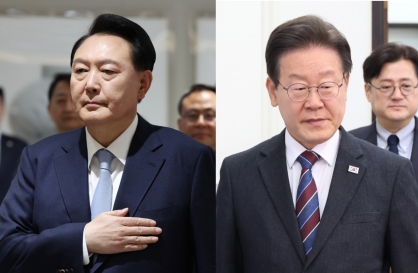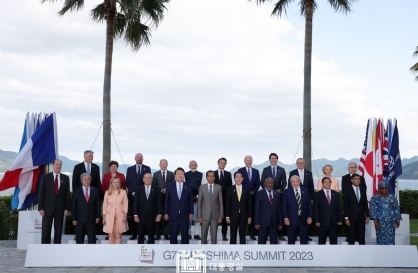Germans are having a hard time believing what happened Tuesday night in Brazil. Sure, they are celebrating their country’s 7-1 win over the home favorites in a World Cup semifinal ― street musicians on Berlin’s S-Bahn are playing “for the German champions” today ― but newspaper headlines speak of incredulity rather than sheer joy.
“Unimaginable, incomprehensible, inconceivable,” said the headline in the daily Frankfurter Allgemeine. “Is it really true?” wondered Munich’s Sueddeutsche Zeitung.
Everything about that victory, however, was logical and even overdue: The entire German soccer system has been working toward this moment since 2001. Yes, the Brazilian squad came apart after Thomas Mueller and Miroslav Klose scored the first two goals, allowing three more in six minutes. Yet it was the quality of the German play that won the game, and that should not have been a surprise.
Germany’s top club, Bayern Munich, is the reigning world club champion and the 2013 winner of Europe’s most prestigious club competition, the Champions’ League (it played another German team, Borussia Dortmund, for the title). On those two teams’ rosters, a full 26 players were eligible to play for the national side, and most were young alumni of the powerful talent-spotting and youth training system that the Bundesliga, Germany’s major soccer league, has built since 2001.
The effort was spurred by Germany’s dismal performance in Euro 2000, the continental championship. The aging team led by foreign-born players who naturalized to become German citizens finished last in its group. Soccer officials decided to remedy the situation and completely overhauled the system. Every pro club was required to run an academy to train up young players. In 2003, a talent-spotting system was set up by the national soccer organization, the DFB. It focused on training enough certified coaches to notice talented players as they emerged, throughout Germany.
“Many coaches in Germany can earn money by coaching a team and so they have enough time to develop themselves and their players,” Frank Wormuth, director of coach training at the DFB, explained recently. “Many” means more than 30,000, more than in other European countries.
According to the Bundesliga’s latest financial report, German clubs spent more than $1 billion on their youth academies since 2001.
The investment paid off. Mueller, who scored the first goal against Brazil, is only 24. He plays for Bayern, where he came up through the youth training system. Toni Kroos, who scored two, is the same age. He started out in the youth system of lowly Hansa Rostock in eastern Germany, before being spotted by Bayern scouts. Another two-goal scorer, Andre Schuerrle, 23, now plays for Chelsea ― he came up through the youth pipeline of Mainz 05, a middling Bundesliga club.
The Bundesliga does not have a restriction on the number of foreign players the clubs may buy or use in any given game. Such a cap, considered to be patriotic, is now destroying Russian soccer. German clubs are, however, required to have no fewer than eight players who had represented a local club between the ages of 15 and 21, and half are required to have spent at least three years with their current club. The system makes sure young players get a chance. The rest depends on their ability to compete with older, often foreign stars. Dante, a top defender with last night’s losing Brazilian side, scored a goal for Bayern in the Club World Cup final last year.
Something else German soccer functionaries did at the turn of the century was to let private capital into the system, in a way that wouldn’t allow investors to dictate club policy: Bundesliga club members, the fans, must always have at least 50 percent plus one vote. Private business still wants to get involved for reasons of promotion and prestige and Bayern counts the insurance company Allianz, carmaker Audi and sporting goods giant Adidas among its shareholders. The system helps clubs raise money, but they stay thrifty. In the Bundesliga, player salaries account for only 39 percent of club expenses, compared to the European average of about two-thirds. That’s one reason why the top German league, the continent’s second biggest after the U.K.’s by revenue, is consistently profitable.
German soccer is so rationally organized, conscientiously coached, elaborately researched and prudently run that it just had to rise to the top at some point. Even if Germany’s young team don’t win the World Cup ― both Argentina and the Netherlands, which has an exemplary soccer system of its own, are formidable opponents ― they will still have one or two more shots at the title. Reason, order and effort will triumph, just give them time.
By Leonid Bershidsky
Leonid Bershidsky is a Bloomberg View contributor. He is a Berlin-based writer, author of three novels and two nonfiction books. ― Ed.
(Bloomberg)
“Unimaginable, incomprehensible, inconceivable,” said the headline in the daily Frankfurter Allgemeine. “Is it really true?” wondered Munich’s Sueddeutsche Zeitung.
Everything about that victory, however, was logical and even overdue: The entire German soccer system has been working toward this moment since 2001. Yes, the Brazilian squad came apart after Thomas Mueller and Miroslav Klose scored the first two goals, allowing three more in six minutes. Yet it was the quality of the German play that won the game, and that should not have been a surprise.
Germany’s top club, Bayern Munich, is the reigning world club champion and the 2013 winner of Europe’s most prestigious club competition, the Champions’ League (it played another German team, Borussia Dortmund, for the title). On those two teams’ rosters, a full 26 players were eligible to play for the national side, and most were young alumni of the powerful talent-spotting and youth training system that the Bundesliga, Germany’s major soccer league, has built since 2001.
The effort was spurred by Germany’s dismal performance in Euro 2000, the continental championship. The aging team led by foreign-born players who naturalized to become German citizens finished last in its group. Soccer officials decided to remedy the situation and completely overhauled the system. Every pro club was required to run an academy to train up young players. In 2003, a talent-spotting system was set up by the national soccer organization, the DFB. It focused on training enough certified coaches to notice talented players as they emerged, throughout Germany.
“Many coaches in Germany can earn money by coaching a team and so they have enough time to develop themselves and their players,” Frank Wormuth, director of coach training at the DFB, explained recently. “Many” means more than 30,000, more than in other European countries.
According to the Bundesliga’s latest financial report, German clubs spent more than $1 billion on their youth academies since 2001.
The investment paid off. Mueller, who scored the first goal against Brazil, is only 24. He plays for Bayern, where he came up through the youth training system. Toni Kroos, who scored two, is the same age. He started out in the youth system of lowly Hansa Rostock in eastern Germany, before being spotted by Bayern scouts. Another two-goal scorer, Andre Schuerrle, 23, now plays for Chelsea ― he came up through the youth pipeline of Mainz 05, a middling Bundesliga club.
The Bundesliga does not have a restriction on the number of foreign players the clubs may buy or use in any given game. Such a cap, considered to be patriotic, is now destroying Russian soccer. German clubs are, however, required to have no fewer than eight players who had represented a local club between the ages of 15 and 21, and half are required to have spent at least three years with their current club. The system makes sure young players get a chance. The rest depends on their ability to compete with older, often foreign stars. Dante, a top defender with last night’s losing Brazilian side, scored a goal for Bayern in the Club World Cup final last year.
Something else German soccer functionaries did at the turn of the century was to let private capital into the system, in a way that wouldn’t allow investors to dictate club policy: Bundesliga club members, the fans, must always have at least 50 percent plus one vote. Private business still wants to get involved for reasons of promotion and prestige and Bayern counts the insurance company Allianz, carmaker Audi and sporting goods giant Adidas among its shareholders. The system helps clubs raise money, but they stay thrifty. In the Bundesliga, player salaries account for only 39 percent of club expenses, compared to the European average of about two-thirds. That’s one reason why the top German league, the continent’s second biggest after the U.K.’s by revenue, is consistently profitable.
German soccer is so rationally organized, conscientiously coached, elaborately researched and prudently run that it just had to rise to the top at some point. Even if Germany’s young team don’t win the World Cup ― both Argentina and the Netherlands, which has an exemplary soccer system of its own, are formidable opponents ― they will still have one or two more shots at the title. Reason, order and effort will triumph, just give them time.
By Leonid Bershidsky
Leonid Bershidsky is a Bloomberg View contributor. He is a Berlin-based writer, author of three novels and two nonfiction books. ― Ed.
(Bloomberg)
-
Articles by Korea Herald



![[KH Explains] Will 6-day workweek for executives help Samsung avert crisis?](http://res.heraldm.com/phpwas/restmb_idxmake.php?idx=644&simg=/content/image/2024/04/21/20240421050096_0.jpg&u=20240421164408)


![[AtoZ into Korean mind] Humor in Korea: Navigating the line between what's funny and not](http://res.heraldm.com/phpwas/restmb_idxmake.php?idx=644&simg=/content/image/2024/04/22/20240422050642_0.jpg&u=)












![[Herald Review] Xdinary Heroes kicks off five-month-long project with solo concert, teases new album](http://res.heraldm.com/phpwas/restmb_idxmake.php?idx=652&simg=/content/image/2024/04/22/20240422050539_0.jpg&u=20240422152154)
![[Today’s K-pop] Illit logs 100m Spotify streams with debut song](http://res.heraldm.com/phpwas/restmb_idxmake.php?idx=642&simg=/content/image/2024/04/22/20240422050650_0.jpg&u=)